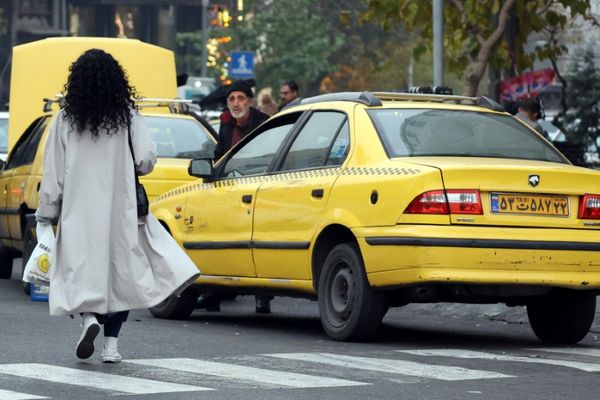
In 2019, when the film-maker Alisa Kovalenko began work on a documentary about teenagers in Ukraine’s Donbas region, she hoped to record the hopes and aspirations of a generation growing up with military conflict rumbling in the background.
Three years later, as Kovalenko was finishing the edit of her film, Russia’s full-scale invasion of Ukraine changed everything. The lives of all her characters were abruptly altered and her three years of footage turned out to be a document of lives that would never be the same again, on territory now occupied by Russian forces.
The resulting film, the recently released We Will Not Fade Away, is therefore a tender coming-of-age portrait and also a window into a lost world.

“This new, young generation was the biggest hope for Donbas. I always had this feeling that while many older people were brainwashed and still living in the Soviet past, these young people had a chance to build a new Donbas,” said Kovalenko, 35, in an interview in Warsaw this week, where the film is being shown in a documentary festival.
The initial idea for the documentary was that it would follow five young people who lived in villages and small towns on Ukrainian-controlled territory, near the frontline with Russian proxy forces that had formed after 2014. The five had won a competition for Donbas teenagers to take a trip to Nepal to see the Himalayas. However, the more Kovalenko filmed in Donbas, the more the Himalaya competition and preparations for the trip faded into the background.
“For me, the most interesting thing was that on this grey and depressing background, these young people were trying to follow their dreams and create their own realities,” said Kovalenko.
The film follows Liza, Lera, Andriy, Illia and Ruslan as they navigate the universal challenges of growing up in small towns – overbearing parents and provincial boredom – as well as the specifics of living close to a war zone.
It draws a tender portrait of the five, who dream of escaping the grind of life in Donbas, where many of their families have always worked in coalmines or other industrial jobs. Ilia dreams of becoming an actor, though his grandmother scolds him, saying becoming a policeman is the only reliable job. Conflict is rarely a focus of the film but rumbles ominously in the background.

All five are desperate to leave for bigger, more exciting places. Shooting the documentary took Kovalenko back to her own childhood in Zaporizhzhia, an industrial centre not far from Donbas, where she was born into a family of metalworkers.
“I wanted to show that even in the most depressing places, you can also dream big,” she said.
For all that the film casts a withering eye on the harsh landscape of Donbas, there is also a clear affection for the territory, as the teenagers find their own adventures to stave off boredom: holding glamour photoshoots in destroyed buildings, thieving lengths of copper from a minefield in an attempt to build a motorbike, or simply fantasising about what life might be like elsewhere.
The full-scale invasion of Ukraine last February made We Will Not Fade Away a film with two codas. First comes the dreamlike voyage to the Himalayas, and then the gut-wrenching final scenes, which explain how the characters have been scattered, with two now living in western Europe, one in another Ukrainian city, and two remaining under Russian occupation.

When the war began, Kovalenko was on a night train to Donbas, having just completed the first rough-cut of the film and planning to record some additional audio. After trying to persuade her characters to evacuate, she signed up to fight with a volunteer battalion, feeling that film-making was irrelevant when Ukraine’s independence was at risk.
She spent five months on the frontlines around Kyiv and Kharkiv, before deciding to return to the film project late last summer.
As the film tours documentary festivals around Europe, Kovalenko has begun thinking about her next project, for which she plans to use footage shot while she was fighting last year.
It will focus not on the action of battle, but instead on the humdrum and tedium of much of the daily routine at the frontline. “This is a side of life at war you don’t often see. I did take part in offensive operations and then it did, briefly, look like Hollywood, but for most of the time, life at the frontline is boring waiting,” she said.
She also wants to focus on the video recordings and written notes she made for her son, then four years old, in the event that she died in combat. Many of her fellow soldiers also had young children and it was a constant dilemma of how much to talk about life at the front, she said, and what to preserve for posterity.

In late November, her former commander, Valeriy Krasnian, was killed and left behind young twins. She had wanted to go back to fighting, but before he was killed Krasnian had advised her to focus on film and on bringing the experience of life at the front to the screen.
“I want the film to be about how you can communicate with a child about this sort of thing, about your feelings during wartime,” she said.
• We Will Not Fade Away is available to view on BBC iPlayer in the UK until Saturday 20 May







